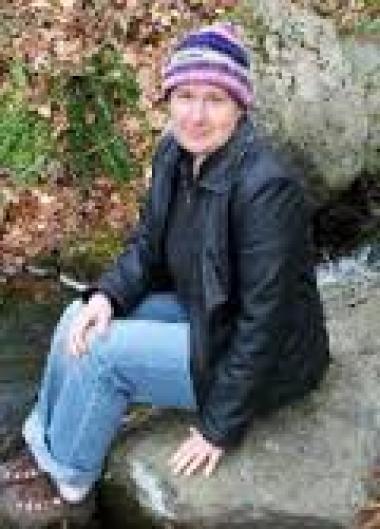
I went to high school in Hiroshima and I remember on Peace Day I went to the Memorial [Peace Memorial Ceremony] and there was a man there who was missing an arm and I spoke Japanese at the time, and he looked at me, he said, “Are you American?” I was like, “Ah!” [laughs] And it turned out that he was a survivor of the bombing [American atomic bombing of Hiroshima, Japan, August 6th, 1945] and he told me his story and I apologized for what happened. But—and we parted very amicably and he wanted to be at the peace museum not to… hurt people, but to help them put a human face on the suffering that war causes. So, I got very interested in how to make sure we don’t have another atomic bombing.
Sasha Adkins, Ph.D. of Clark University, attributes her unique upbringing, whereby she spent seven years at sea, as crucial in her exposure to the importance of communication and the value in diversity as she encountered a variety of walks of life and cultures; of which, one that played a most formative role was her time spent in Hiroshima. Adkins describes her experience encountering survivors of the American bombings as transformative, whereby she began thinking about her role in the world and the tools, or lack thereof, that she had at the time in order to stop these acts of violence from occurring again. It was not until Adkins travelled to Kenya while studying at Wesleyan University in Georgia, that she first encountered immense suffering first-hand. Adkins time in Kenya profoundly altered her vision of war-violence and heightened her desire to engage in international research in the hopes of making a positive impact in response to the atrocities which she could not unsee. Time spent at the School of International Research provided Adkins a unique educational experience, during which she had the opportunity to go out into the “field” and engage with women crossing the border to give birth around the El Paso, TX area, to give meaning to the texts she and her peers were engaging with in the non-normative, narrative-based classroom. Her research is focused on environmental degradation, in particular, the ways in which our societies engage with non-biodegradable materials that end up killing those who are most disadvantaged. She hopes to deteriorate the arbitrary, socially constructed binaries that exist with regard to the hard sciences and faith, suggesting that the manner in which we treat one another is correlated to the manner which we treat matter things.
